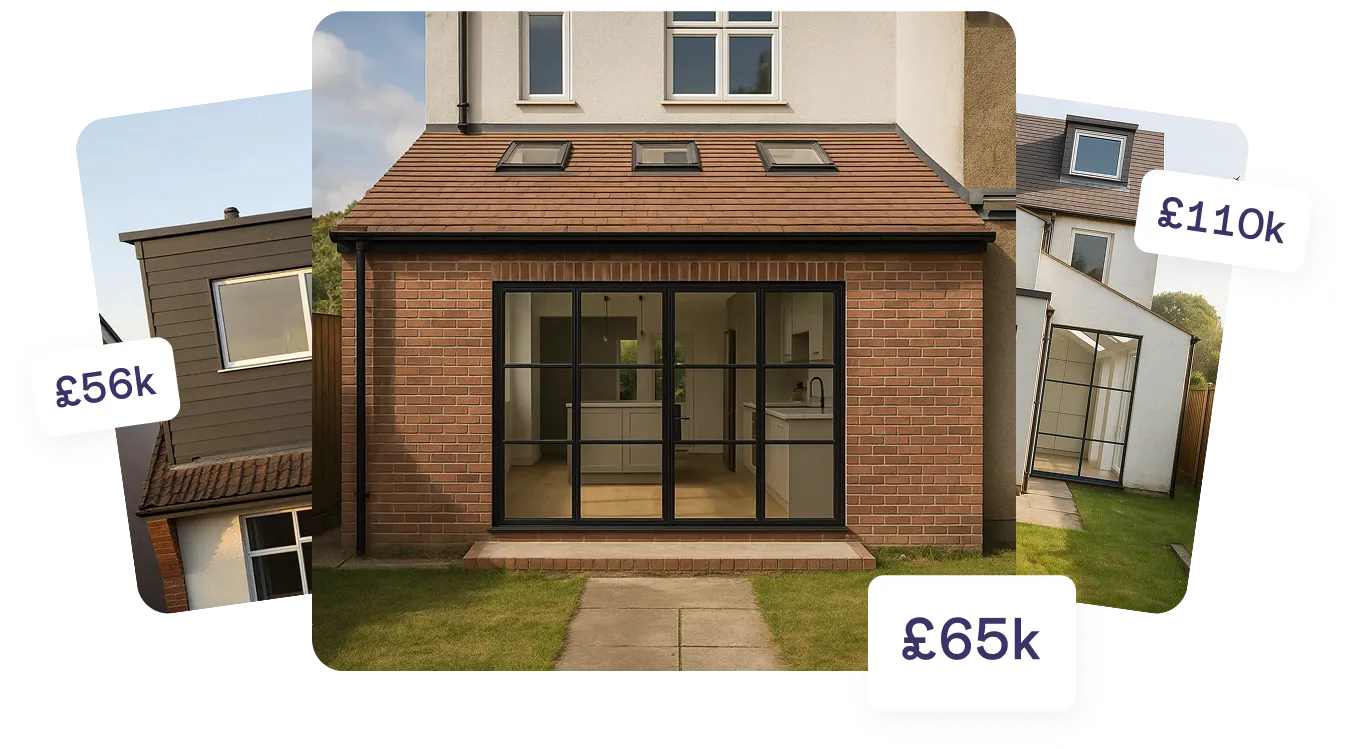Planning permission
Speaking of planning permission, change of use won’t be your only concern.
If you’re extending or altering the exterior of your home, you might need to apply for planning permission. However, this could be avoided if you’re within your permitted development rights - a scheme introduced by the Government to allow more homeowners to make alterations.
Learn what work is included within your permitted development rights.
It’s worth bearing in mind, permitted development rights do not extend to…
- Flats
- Maisonettes
- Some new developments
- Homes in conservation areas
- And listed buildings
This last one is important, as many people choose period properties as their renovation project. While restoring old homes to their former glory is an amazing project to undertake, beware that listed buildings can prove tricky in the planning stage. You’ll face much greater push back, with a greater emphasis on retaining the building’s distinctive features.
Location of the property
Location, location, location - it’s the most important factor in buying a home.
While you’ve most likely considered local transport, schools and amenities, you’ll also need to factor in renovation costs. Those who plan on renovating a property in London are going to pay a lot more for any construction elements than someone having work done in Folkestone. Why?
Because the higher living costs around London pushes the prices on contractors up. Likewise, if you want to renovate a property in a remote location, transportation costs will increase your budget.
Budget needed
Budget is a huge factor to renovations. If you’re doing this as a cost-effective way to buy property, then you want to make sure your renovation costs don’t spiral out of hand.
Discuss with an architect the level of work required and then look into your finance options. Superficial changes (fittings and decoration) can be done cheaply, especially with some DIY, but knocking down walls or extending are bigger commitments.
The good news is, there are plenty of finance options out there for homeowners, with many home improvement products on the market.
Hidden details
When it comes to renovation, it can be easy to get lost in the big picture. Where will your kitchen go? What kind of flooring do you want? But alongside this, don’t forget to pay close attention to those hidden concerns.
Such as…
- Foundations
- Plumbing
- Electrics
- Roof
These four things are vital to our everyday home lives but can be overlooked in the exciting first viewings. Not only that, repairing or replacing these items are incredibly expensive and not something you want coming as a surprise.
Again, having a surveyor on board can help avoid these surprises.
Do you have nice neighbours?
If your home shares a wall or boundary with a neighbour, you’ll need next door’s consent for any renovation work that may affect it. In most cases, this can be a painless process. With a party wall surveyor (or by yourself) you’ll service notice about your work and if you get written consent in 14 days, you’re good to go. However, if consent is withheld, then you’ll need to arrange a party wall agreement. This can often be a costly legal dispute, taking around 3 months to secure.
Learn more about party wall matters.
Professionals required
Will you go for DIY or get a professional in?
For small renovations, some good old fashioned elbow grease might be just the thing, but for those more substantial projects, you’ll likely need some help.
Professionals you might get onboard could include…
- Architect
- Surveyor
- Structural engineer
- CCTV surveyor
- Party wall surveyor
- Project manager
- Contractors
Some of these will be a must-have, while others might seem an indulgence. For instance, many assume architects aren’t needed for restoration. However, it’s worth doing your research. Architects are masters of unlocking potential, so if you do nothing else, having one run some concept designs on your property could help you get the maximum value from your new purchase.
Learn more about the benefits of architects.
Ceiling prices
Ceiling prices send a cold shiver up the spine of anyone looking to add value to their home. If your area is affected by a ceiling price, it means that no matter how much improvement you undertake, your home is unlikely to exceed a certain price point on the market. This can be a nightmare if you’ve just invested a large amount of money into a pricey extension. For this reason, we highly recommend researching the house prices in your area before you commit to any costly project.
Where will you live?
If you’re undergoing a major renovation or extension, then time spent on your home could go anywhere between 7 and 15 months - and this is if you’re diving right on in. Many homeowners take years to get their home finished.
However, the most important question you should ask is: when will the property be livable?
If you’re having work done to the roof, pipes, electricals or even an extension, your new home might not be suitable for habitation. This means, along with everything else you’ve budgeted, you need to factor in potential short-term rental fees.
Want to learn more about renovating your potential dream home? Book in a call with our team. We offer free consultations, meaning expert advice is only a click away!





